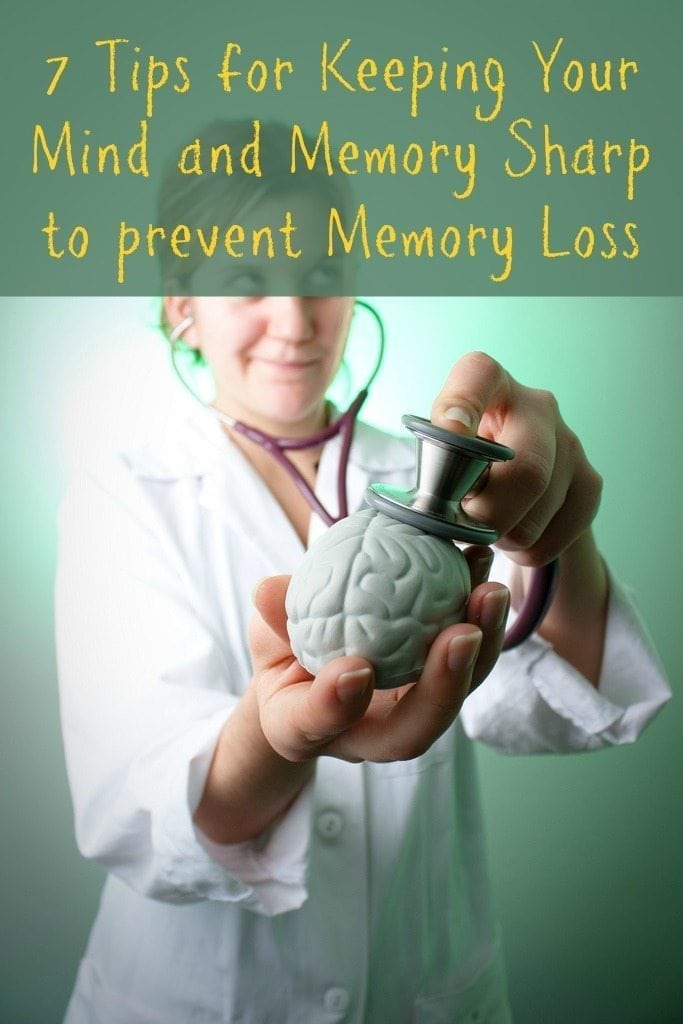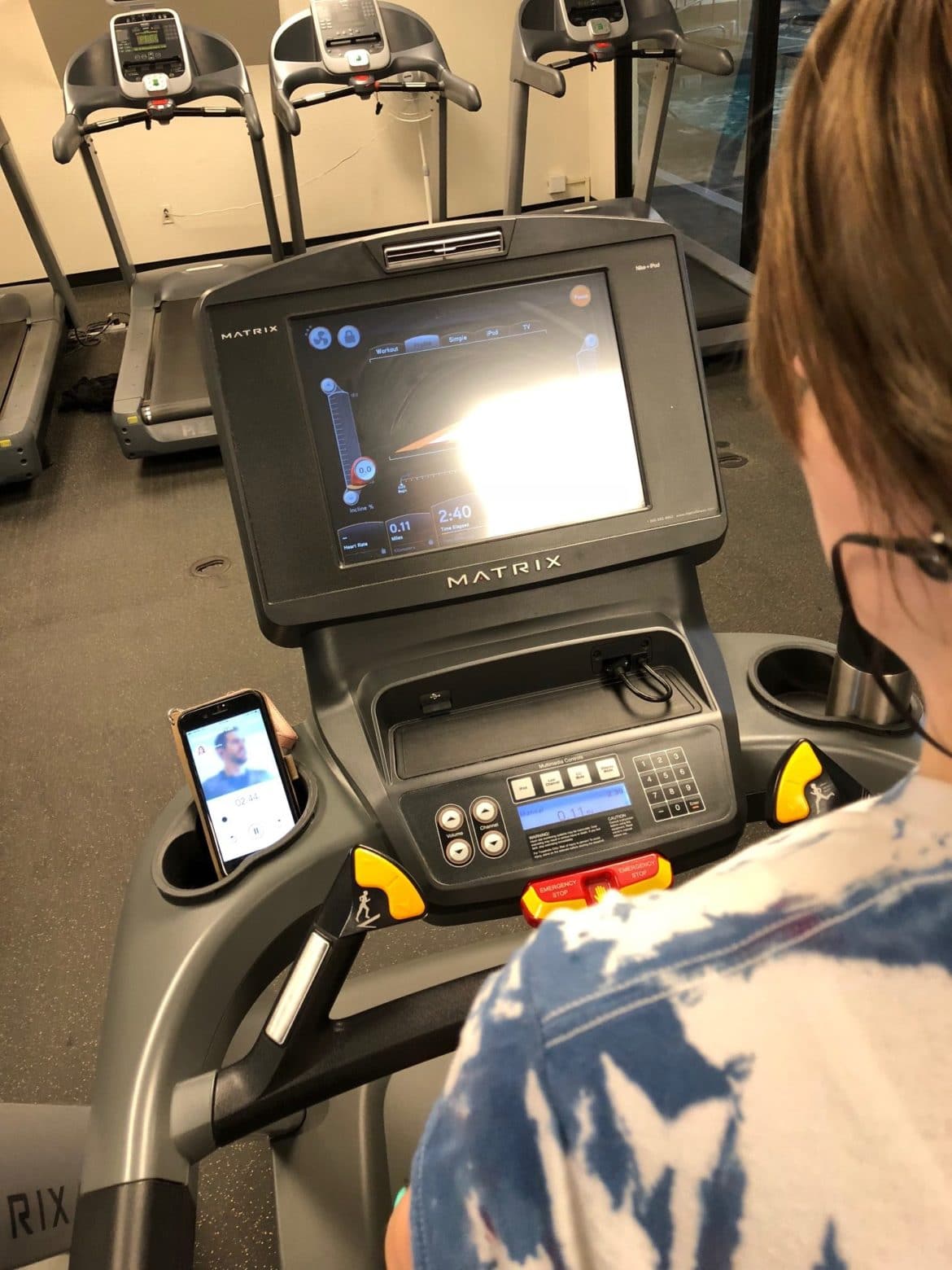7 Tips for Keeping Your Mind and Memory Sharp
Until recently, Alzheimer’s disease was thought to be the 6th leading cause of death in the United States. However, a new study suggests that it Alzheimer’s may contribute to almost the same amount of deaths as heart disease or cancer, which are the top two causes of death.
To me, this is kind of scary! While there is a lot of research being done about Alzheimer’s disease and other dementias, there isn’t one specific reason why people get it, and at this time, there is no cure. Most scientists have concluded that it results from a “combination of genetic, lifestyle and environmental factors that affect the brain over time,” which to me, means that just about anyone is at risk!
My grandma has Alzheimer’s disease, and it has been heartbreaking to watch as her memory has disappeared. Not only is it hard to watch her not be able to participate in life the way she once was able to, but it’s so sad to see how much it effects my grandpa and my mom. There’s not a lot they can do, but just be patient and love her. My mom often says that sometimes you just have to laugh to keep you from crying.
Watching her have this terrible disease has made me want to learn more about memory loss, and what you can do to help prevent it. From everything I’ve read, most will say it’s never too late to try and increase your mental acuity, and while there’s no 100% prevention for memory loss, these tips can help slow or prevent memory loss. In one of the links above, it said that less than 5% of Alzheimer’s cases can be attributed to a genetic factor that made a person guaranteed to get the disease, no matter what they do, but for everyone else, there are ways to prevent memory loss from happening. Here are a few:
1) Exercise (your body)
I think that a lot of the health problems that exist in the world today could be prevented if people exercised more. But I know it can be hard to make sure you get regular exercise in, believe me! However, I also know that when I consistently exercise, I feel better — I sleep better, I feel more alert, and some of my chronic health issues seem to improve as well. Mind and body go hand and hand together, and by exercising regularly, you can decrease your chance of so many diseases, including Alzheimer’s.
Exercise doesn’t have to be super strenuous for it to be helpful. Aiming to exercise for 30 minutes a day, five times a week, is a great goal. If you’re wanting to start exercise, but don’t know where to start (or just need some motivation!) be sure to check out my tips for beginning exercise post from last week.
2) Exercise (your brain)
If you want to keep your mind, you need to work it, too! Never stop learning. There are so many resources out there to help you flex your brain to keep it in tip top shape. You can try and do something as simple as Sudoku or a Cross Word Puzzle (which can be found for free online, or in a newspaper or magazine.) Why not pull out a memory game from the closet?
I recently started using the app Fit Brains. It was created by neuroscientists and “helps you train crucial brain skills such as memory, concentration, problem-solving, processing speed, language, and spatial recognition.” I often find myself opening the app when we are driving somewhere, or I’m just needing something to wind down with. It’s really fun, especially when you start to see improvement upon repeated use.
3) Eat Healthy
Food is directly tied to your overall health (obviously!) There are a lot of foods out there that aren’t good for you, and I wouldn’t be surprised if they were someday linked to memory loss (you know how sluggish you feel after eating a big dessert??) There are a lot of great foods out there, however, that are great for your brain. If you try to incorporate these into your daily diet, it will help your brain and your body alike!
- Whole Grains (so no refined sugars or flours!)
- Fish – EPA and DHA are the most effective omega-3 fats (which are so important for the brain) and occur naturally in oily fish.
- Foods rich in B6, B12, and Folic Acid (there’s a reason why women are told to increase their folic acid when they are pregnant — it helps their child’s brain development!)
- Dark green and leafy vegetables. Instead of iceberg lettuce, consider spinach or a mixture of leafy greens!
- Nuts
- Coconut oil
- Avocado
- Sunflower and Pumpkin Seeds
4) Sleep
A quick Google search will yield all the benefits of getting enough sleep…and all the harmful effects of not getting enough. Sleep is a time for your body to rest and heal itself, and if you don’t get enough rest, do you think your brain is able to rejuvenate itself as effectively? Probably not! I mean, think about it…when you don’t get enough sleep, can you really think straight? I know with me, my judgement is impaired, and I don’t really think straight. For instance, when I was in college, I stopped taking early morning classes, because my mind just wasn’t in it.
It is recommended to get at least 8 hours of sleep each day. I recently started tracking my sleep with my Misfit Shine, and it’s been so interesting to see my sleep patterns, and how much “deep” sleep I get each day.
5) Memory Tricks
As you are doing day-to-day tasks, you can exercise your brain by using memory tricks. This is especially useful if you have a hard time remembering things already. Here are a few tips from WebMD:
- Make a routine. Always put often-used items, like your glasses, keys, wallet, and phone, in the same place every time.
- Write it down. Jot down things you need to remember — like appointments or grocery items you need — as soon as you think of them.
- Set an alarm. It can help you get to places on time or remember to take medications.
- Leave yourself reminder notes.
- Learn and repeat. To remember names, use the name often in conversation. Try to link the name with a picture that reminds you of that person.
6) Avoid Stress
This is one area I need to work on myself — I get stressed out way too easily! It’s easier said than done, believe me, but some ways to avoid stress are listening to relaxing music, exercise (hey, kill two birds with one stone on your quest to better mental health!), meditate, get enough sleep, etc. By decreasing the amount of stress in your life
7) Social Support
There’s research that shows that those who have strong social and emotional support, and are close with their families, tend to have less instances of Alzheimer’s disease than those who live in seclusion. I don’t think this means you have to go out there and party all day, every day, but feeling close to people is a good thing.
Obviously, even if you do all these things perfectly, you may still have memory loss. When I think of my grandma, she’s always been in good shape, eaten pretty healthy, and was always very social, yet she still has Alzheimer’s. However, I do believe that these tips for preventing memory loss can be effective, and it’s worth doing. I know I want to do everything I can to prevent getting Alzheimer’s (and I pray every day a cure is developed soon!)
photo credit: deadstar 2.1 via photopin cc
Disclaimer: I am NOT a medical professional, and this advice cannot be substituted for that of a medical professional. It is simply tips I have found from my own research and goal to increase my mental acuity and prevent memory loss as much as possible.








I am always worried about loosing my memory as I start getting older, and I would like to avoid that at all costs. It’s good to know that one way to prevent this is to avoid stress as much as possible. I like how you pointed out that to do this is to try and relax, and just keep calm. That is something that I will have to keep in mind, whenever I start feeling worked up about something.